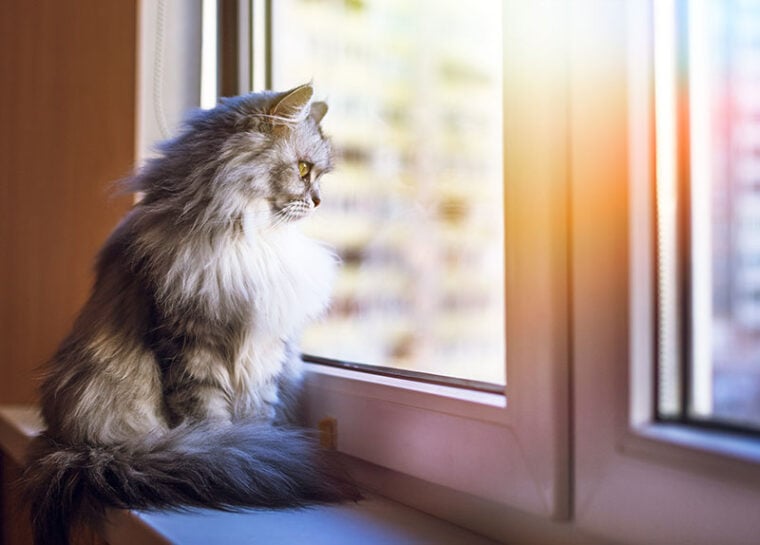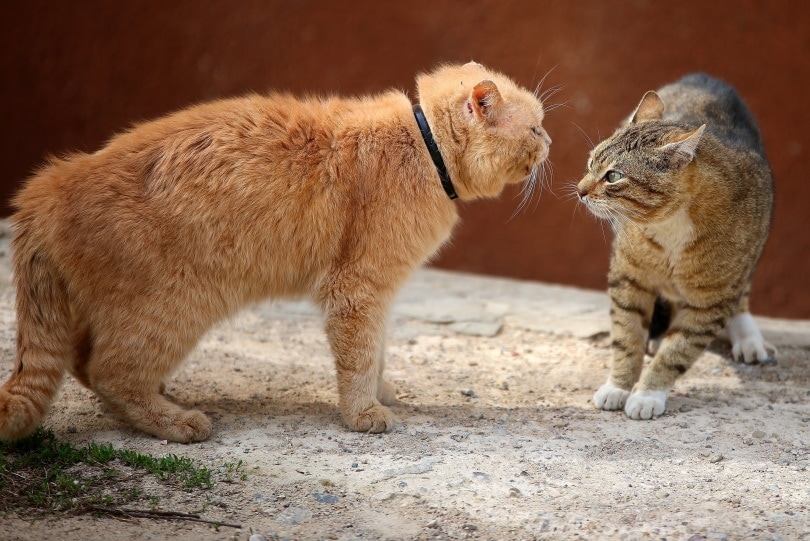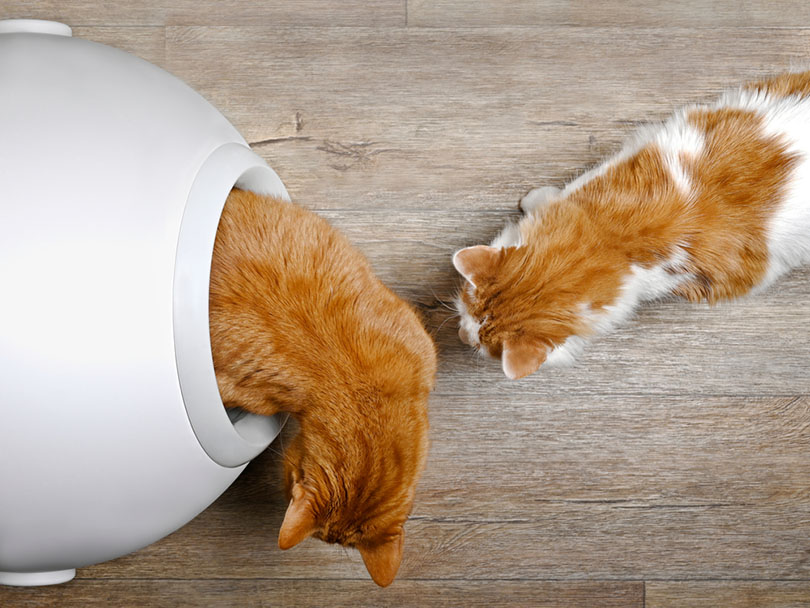
Letting your feline live outdoors or keeping them only indoors is a critical decision for many cat owners. Before making this choice yourself, you must consider various factors related to the well-being of your cat.
In this article, we discuss why it’s not wrong to keep your cat only indoors, how to improve the environment in which they live, and the advantages and disadvantages of letting your pet roam outside.

Should I Keep My Cat Indoors All the Time?
In an ideal feline world, all cats could roam safely on the streets or in neighbors’ yards. But unfortunately, things are not ideal. Although living outside has its advantages, there are also many disadvantages, including ones that can be fatal for your cat.
The Advantages of Roaming or Living Outdoors
In nature, your cat can indulge in their natural behaviors, such as hunting, marking their territory, and exploring. For your cat to benefit from all this, their environment must be safe. But unfortunately, in most situations, letting your cat roam outside does not provide security.

The Risks That You Expose Your Cat to If You Let Them Roam Outside
The decision to let your cat outside involves certain risks, including ones that can be fatal.

Is It Wrong to Keep My Cat Indoors All the Time?
Given the disadvantages of the outdoors, it is not wrong to keep your cat only indoors, especially if you live in an apartment or in an area that is not cat friendly. But to satisfy your cat’s needs, you will need to keep them healthy with a quality diet and exercise and enrich the environment in which they live.
What Is Environmental Enrichment?
By offering your cat an enriched environment,6 you can increase their activity, reduce mental stagnation, and prevent certain behavioral problems (urinating and defecating in inappropriate places, excessive licking, scratching objects in the house, etc.). All cats need mental stimulation, whether they live outdoors or indoors. However, it’s vital for indoor cats because it’s easier for them to get bored and not lead a happy life.
An enriched environment enables your cat to create their own positive experiences in a confined, safe space. The goal is to stimulate interactivity, which means more space, litter boxes, food, water, and activities.

How Can I Keep My Indoor Cat Happy?
Here is what you can do to enrich your cat’s environment and keep them healthy and happy:
- Interactive feeding — To make feeding your cat a fun experience, you can try food puzzles or interactive toys. These can be filled with your pet’s favorite food or treats, and your cat will have to take their time trying to get them out. You can also feed your cat in a new area every day or hide their favorite treats in a new place every time.
- Litter boxes — Place the litter box in a safe place, away from busy traffic, without noise or electronics that could turn on at any moment. Cats are meticulous when it comes to urinating or defecating, so it is recommended to create a relaxing environment.
- Social contact — If you own several cats, have various places where your pets can feel safe and retreat to if they feel the need, regardless of the size of your home. For example, you can make shelves from wooden boards that you fix into the wall.
- Behavioral system — Behaviors such as scratching, chewing, or excessive playing can be considered annoying by many cat owners. To avoid inappropriate scratching, your cat needs suitable scratching posts. Pheromone diffusers will give cats a sense of calm. Unwanted plant chewing can be avoided by offering your pet various cat-safe plants and grasses.

Conclusion
For a cat, living outdoors can be a challenge, and in certain situations, it can even be fatal. So, it is not wrong to keep your cat only indoors. Your cat will be less at risk of contracting infectious diseases or parasites, getting lost, or being hit by a car. Also, your cat will not be exposed to attacks from other animals, especially from other cats. That said, for your cat to be happy and healthy indoors, you must fulfill their needs by enriching the environment in which they live. To do this, you can feed them interactively, play with them more often, buy pheromone diffusers, or put shelves on the wall to give them more space vertically. The possibilities are endless!
See Also:
- Can Indoor Cats Become Outdoor Cats? Tips, Risks & Alternative Solutions
- Can Outdoor Cats Become Indoor Cats? Facts & Transitioning Tips
Featured Image Credit: lkoimages, Shutterstock







